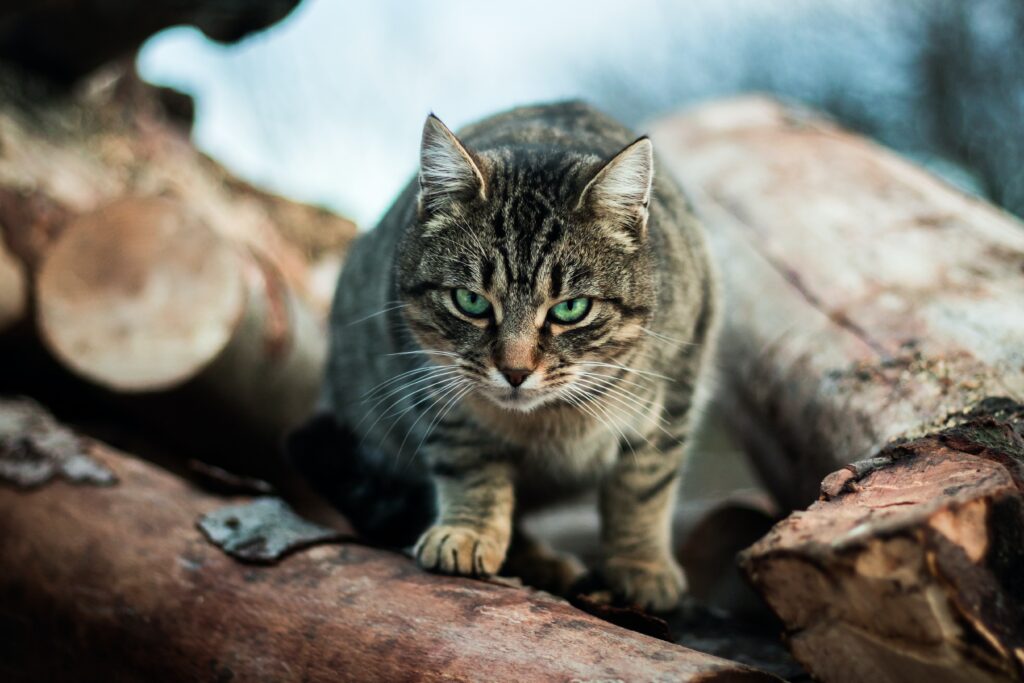Cats are a treasured pet for many families in Australia, with around 23% of households owning one or more. But for our native creatures, cats can be a menace! Even the most docile cat indoors may be a ruthless hunter. Birds, skinks, frogs, bats, insects and possums are all potential targets. This has major impacts on our already threatened biodiversity.
Feral and domestic cats can be found throughout every ecosystem in Australia. Highly adaptable to different environments, cats are intelligent, efficient and skilled hunters, and will catch prey beyond their needs for food. It is estimated that feral and pet cats kill on average more than a million birds every day in Australia. Including mammals and reptiles, that figure goes up to 390 million creatures a year. Wild cats have only been here for around 200 years so many of our native animals do not recognise them as predators until it’s too late.
Cats have a large territory, with male wanderers visiting an area of about 150 acres, and females around 40 acres. They can range up to 10km from home. Female cats can have two or three litters each year, with an average of 1-8 kittens. In her lifetime, she can produce more than 100 kittens. Mainly active at night, the number of feral or domestic cats actively roaming and hunting in an area may go unseen. Studies have found that cats only bring 30% of their prey home. Cats can also spread toxoplasmosis, a blood disease that is very harmful to humans and livestock, and deadly to native birds and mammals. In Tasmania, 84% of feral and stray cats tested were found to be infected.
Owners may believe that cats need to be free to roam but they are adaptable creatures and will happily live confined to backyards or indoors. Even cats kept indoors at night can still hunt animals that are active during the day. Cats can impact on neighbours by digging up gardens or using them as toilets, fighting with other cats, entering houses or disturbing pets. Cats that are confined in homes and cat enclosures can live three times as long as roaming cats.
In the Wyndham City region, there are rules in place to protect domestic cats and our wildlife. Cats must be microchipped, registered and desexed. There is a cat curfew between 10pm and 6pm, when cats must stay on their owner’s property. Cats kept in this way are safer and healthier, and so is our local natural environment.
For more information, visit: https://www.wyndham.vic.gov.au/services/pets-animals/animal-complaints-pests/wandering-cats
